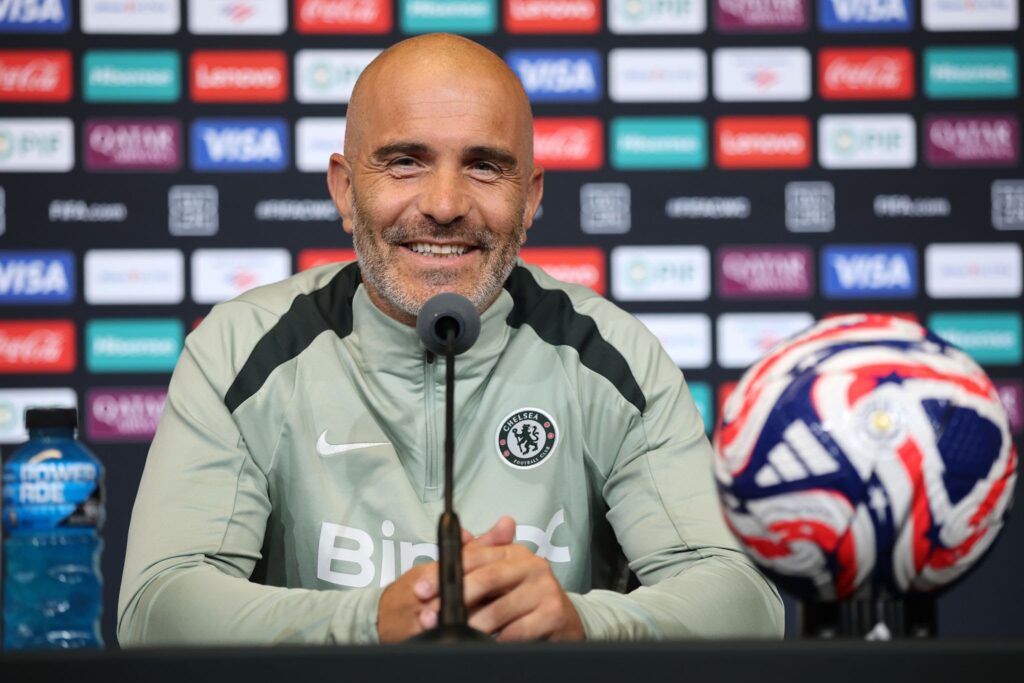
Severe heat during this summer’s Club World Cup in the United States has prompted suggestions that next year’s men’s World Cup final could be held at 9 a.m., according to an expert.
BBC Sport spoke with Professor Mike Tipton from Portsmouth University, a leading authority on how extreme heat affects the human body, about how FIFA should manage a heatwave during next year’s tournament.
Tipton, like many others, has been alarmed by the harsh conditions players have faced in some Club World Cup games in the US, underscoring the possible danger for FIFA’s 2026 tournament, which would take place in the same nation and season.
Last week, eastern North America saw its first major heatwave of the summer, sending dozens of people to hospitals with heat-related issues. For example, New York recorded 39 °C on 24 June—a new record for that month.
The MetLife Stadium, located near New York City, is scheduled to hold eight World Cup games, including the final match. Similar to many venues in the US, Canada, and Mexico, it doesn’t have a roof and offers limited shade for fans.
Match start times would be confirmed only after the draw in December. However, BBC Sport has learned from sources that games in the eastern time zone will likely kick off at noon, 3 p.m., 6 p.m., and 9 p.m. local time, to suit European viewers and satisfy broadcasters, advertisers, and sponsors.
Tipton, who has worked with Team GB athletes like triathlete Jonny Brownlee following his heat-related collapse in Mexico in 2016, explained that if similar conditions return, shifting matches—including the final—to the morning would be the most practical and safest option.
He recommended relocating matches to stadiums with air conditioning and roofs, and ideally holding them during a cooler part of the year.
But he acknowledged that with current plans in place, the realistic solution would be to shift games to cooler times of day. He explained that from a health and performance point of view, the goal should be to start matches as early as possible, though he recognised the challenges of getting tens of thousands of fans will reach stadiums early in the morning.
.He also emphasized that health dangers aren’t limited to the players but also affect referees and fans, many of whom have much lower levels of fitness. He warned that if games continue in conditions that scientific evidence says are unsafe, organisers would bear serious responsibility. He added that the game itself might need major changes.
He further suggested that FIFA should carefully think about where, when, and how matches are held, and said it’s possible games may even have to be split into quarters instead of halves.
Wake-up call’
Although some people might see these proposals as unrealistic, the global players’ union Fifpro is now urging a more adaptable approach after what it describes as the Club World Cup’s “wake-up call.”
Speaking at a press conference on Monday, Fifpro’s medical director, Dr Vincent Gouttebarge, said that in cases of extreme heat, extending half-time to 20 minutes should be considered to help keep players’ body temperatures within a safe range.
Alexander Bielefeld, Fifpro’s policy director, noted that the weather was becoming “more and more worrying.” He explained that while delaying matches due to heat is “slightly more complicated” than in domestic competitions, the union firmly believes health and safety must come before commercial interests.
Fifpro’s general secretary, Alex Phillips, said, “We’re partly satisfied because Fifa has actually responded quite quickly during the tournament and adjusted how it handles heat in matches, following our advice.”
He added, “Of course, it would have been better if those steps had been taken beforehand, but they did add measures like extra water and towels around the field.”
“At some point, there needs to be agreement on what the industry considers an acceptable safety limit for players and spectators. You can put in place practical steps like shade, hydration, and cooling, but eventually that may not be enough. This is a conversation we have to have, even though it’s challenging because of financial interests.”
Earlier this year, researchers from Queen’s University Belfast cautioned that temperatures at 14 out of the 16 stadiums planned for the 2026 World Cup might hit hazardous levels. Miami and Monterrey were highlighted as the most at risk because they don’t have air-conditioned facilities.
Although Dallas and Houston have cooling technology, the report said fans could still face heat risks if matches are played in the afternoon. Notably, the researchers also recommended avoiding afternoon games in New York, Boston, Kansas City, and Philadelphia.
According to Fifpro, afternoon matches at six stadiums—Miami, Monterrey, Kansas City, Dallas, Houston, and Atlanta—pose an “extremely high risk” of heat-related injuries.
When asked whether Fifpro plans to advise Fifa on kick-off times before the tournament, Phillips replied, “We don’t have any power to make them change anything. We can only apply informal pressure.”
However, with next year’s World Cup featuring 104 matches—more than any other tournament—Fifa may believe that rescheduling or postponing games will be difficult to manage.



FIFA might want to think about scheduling the World Cup final at 9 a.m. – Jaitu28 Sports news
bgcqdegvnb http://www.gf1k8p6i42iv9rnz7v0wud8s622594p6s.org/
abgcqdegvnb
[url=http://www.gf1k8p6i42iv9rnz7v0wud8s622594p6s.org/]ubgcqdegvnb[/url]
Pingback: Liverpool Manager Arne Slot Eases Injury Concerns Ahead